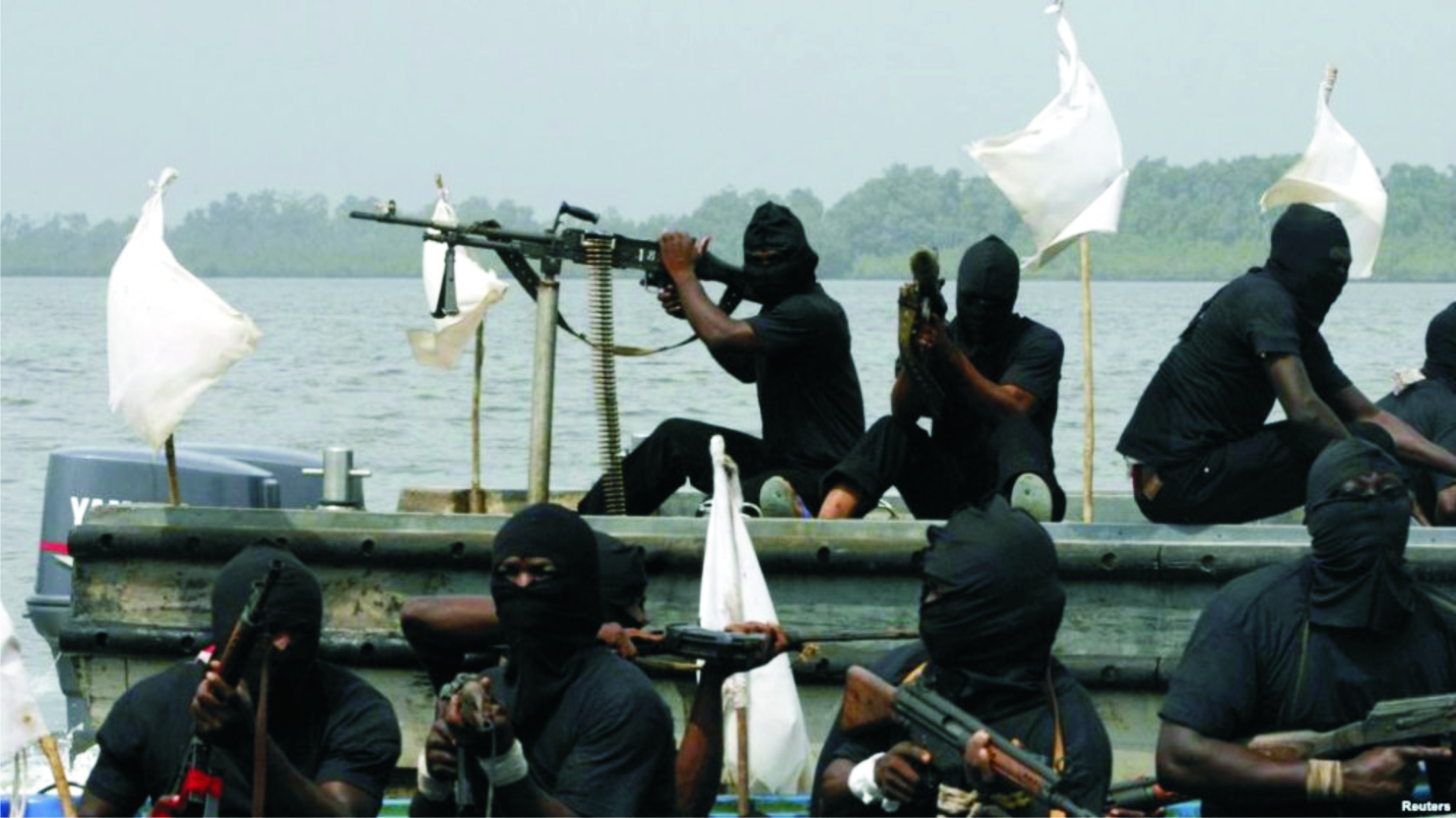Editorial
Militants’ Demands And Peace In N’Delta

Barring any positive state interventions and responses, the fragile peace and stability hitherto enjoyed in the Niger Delta region may soon be endangered severely. A worrisome situation indeed requiring urgent actions in the upcoming days.
The fresh anxieties supersede warnings by militant groups from the nine states of the Niger Delta, vowing to resume hostilities. The latest threats may have aimed at showing solidarity with the #EndSARS protests, as the militants presented an 11-point demand to the Federal Government.
Self-styled “Major-General” Johnmark Ezonebi, leader of the Reformed Niger Delta Avengers (RNDA), unequivocally stated that the coalition had communicated multinational oil companies to evacuate their staff to forestall human casualties.
The Avengers are demanding the release of the N98 billion gas flare penalty funds to the host communities; total control of resources in the region; linking of riverine areas in the Niger Delta to the cities with roads and bridges; withholding the release of 2021 NDDC budget till the inauguration of a substantive board.
Others are immediate take-off and re-opening of the Burutu Seaport and its inclusion in the 2021 budget; review of the Revenue Allocation Act to give a proper interpretation of the 13 per cent derivation funds; allocation of pipeline security surveillance job and release of the 10 licences for modular refineries in the Niger Delta.
The Federal Government should know all too well that it has been unsuccessful in handling conflicts in the region following the wrong approach. Thus, we may be in for an interminable recurrence of violent threats in the region. In 2018, the Niger Delta Avengers (NDV), had issued a remarkably similar threat in reaction to the killings by herdsmen across the country.
Though we deeply deplore the use of violence to redress any problems, we strongly advise the government to honour the 2016 peace pact with the militants. Truly, the RNDA has enough reasons to be disenchanted with the antics of the Muhammadu Buhari’s administration. These are dangerous times; so, unnecessary confrontations with militants need to be prevented to safeguard the ailing economy.
A replication of the last major attacks on oil facilities by militants which resulted in a total shutdown of oil terminals and took oil production to its lowest level in twenty years, must be circumvented. That incident dangerously positioned Nigeria far behind Angola as Africa’s largest oil producer. Both the economy and the budget suffered for it.
The government always pays lip-service to develop the region. The interventionist agencies, the Niger Delta Development Commission, (NDDC), and the Niger Delta Ministry, have all been reduced to mere bureaucracies, fraught with the most frustrating corruption. At no time has the government committed the enormous funds it deploys to the North East to the Niger Delta, the producer of the wealth.
Most of those demands are not strange. They have always been there awaiting attention. It is heartwarming that the federal authorities have begun a dialogue with the Avengers and stakeholders through the Deputy President of Senate, Senator Ovie Omo-Agege, who is expected to convey the complaints to President Buhari.
Since Omo-Agege has earned the confidence of the militants and kick-started the dialogue process on behalf of the Federal Government, the Presidency should stick to him and shun any other group likely to parade themselves as critical stakeholders in the region to hijack the discussions for selfish reasons.
Again, it is unfair to deny host communities huge gas flaring penalty funds currently stacked in the Central Bank. We demand an end to this injustice. Gas flaring must terminate or let compensations be paid. Also, the headquarters of the oil majors are yet to relocate despite the presidential directive about two years ago. This is certainly not the way to go.
On another level, the legitimate demand to restructure the country has become like a recurring decimal and needs to be addressed now to ensure stability and corporate survival. It beats the imagination why the President is so intransigent and has grown too fondly of his anti-restructuring stance.
We broadly endorse the call by RNDA for a review of the Revenue Allocation Act to give a proper interpretation of the 13 per cent derivation funds managed by governors of the region. Explanations are absolutely required from these governors why the monies are not utilised for their intended use; that is to develop the host communities.
Nigerians need a guarantee that hostilities would not return in the Niger Delta. It, therefore, seems appropriate to spare no efforts to redress the injustice often perpetrated by the Federal Government and its cronies. A restructured Nigeria with well-defined rules of engagement will serve all sections of the country better than what currently obtains.
Editorial
As NDG Ends Season 2

Editorial
Beginning A New Dawn At RSNC

Editorial
Sustaining OBALGA’s Ban On Street Trading

-

 News3 days ago
News3 days agoAmend Constitution To Accommodate State Police, Tinubu Tells Senators
-

 Politics3 days ago
Politics3 days agoSenate Urges Tinubu To Sack CAC Boss
-

 News3 days ago
News3 days agoDisu Takes Over As New IGP …Declares Total War On Corruption, Impunity
-
Business3 days ago
President Tinubu Extends Raw Shea Nuts Export Ban To 2027
-
Business3 days ago
Crisis Response: EU-project Delivers New Vet. Clinic To Katsina Govt.
-
Sports3 days ago
NDG: Rivers Coach Appeal To NDDC In Talent Discovery
-
Business3 days ago
President Tinubu Approves Extension Ban On Raw Shea Nut Export
-
Rivers3 days ago
Etche Clan Urges Govt On Chieftaincy Recognition

